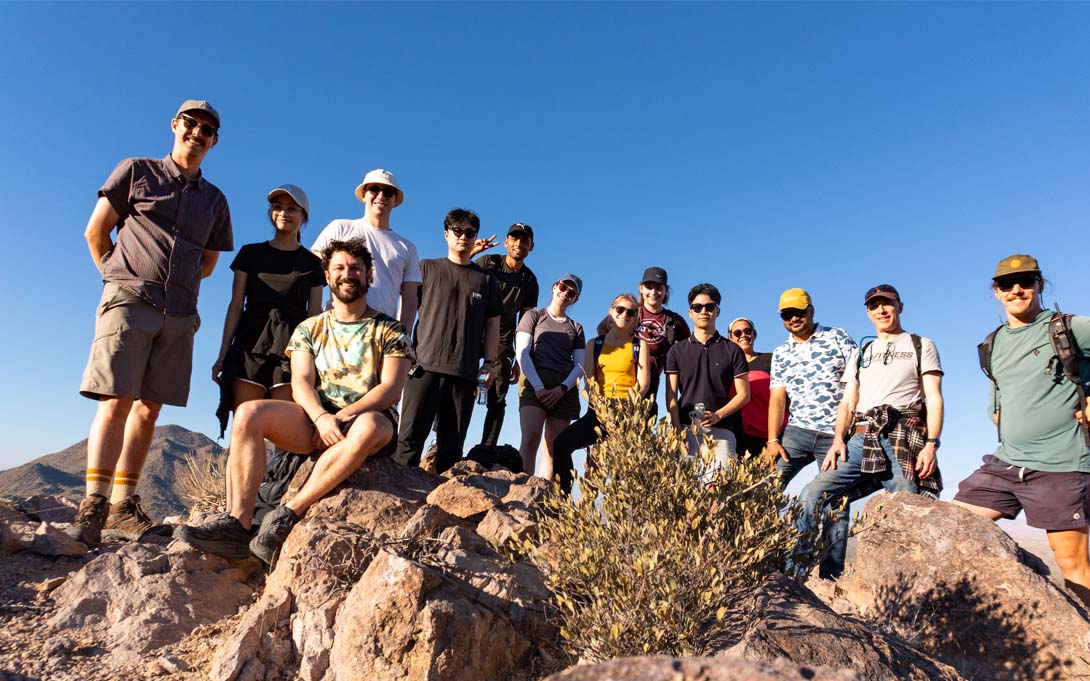
By Jared Katzman, PhD student, School of Information
Thanks to the STPP Career Development Grant, I had the opportunity to attend the 2025 Winter School hosted by Arizona State University’s School for the Future of Innovation and Society. We spent a week at the beautiful Saguaro Lake Ranch, at the foothills of Teton National Park, less than an hour from downtown Tempe, Arizona. The program was an incredibly enriching experience that brought together scholars, practitioners, and students to explore the societal implications of emerging technologies. It was a truly interdisciplinary space, bringing together anthropologists, cell biologists, and technology policy experts to explore how we can put our training in Science, Technology, and Society (STS) into practice.
During sessions and activities throughout the week, we explored how researchers and technologists can collaborate with social scientists to better understand the societal implications of their work. We learned about how to integrate social science projects into science funding to help align science with public needs and values.
For example, in one session, Dr. Ruth Wiley led us through an activity called “Futures by Chance, Futures by Choice” to introduce us to games we can use to increase foresight capacities. We started with a blank 50-year timeline and had to build narratives around scenarios such as population growth, climate resilience, and technological adoption. The exercise blended structured prompts with creative freedom, encouraging us to think critically about the plausibility and desirability of technical innovations. It also underscored how social and technological changes intersect, requiring interdisciplinary approaches to envision and address long-term challenges.
Another standout session, led by Dr. Nick Weller, focused on participatory technology assessments. We examined how communities can be engaged in decisions about complex and controversial topics, such as nuclear waste storage. Dr. Weller highlighted an example of designing democratic sociotechnical processes, where community members are actively involved in consenting to the placement and management of nuclear waste sites. The session underscored the importance of co-creating governance processes that balance expert knowledge with community input, fostering both legitimacy and accountability.
This experience has profoundly influenced my research and professional trajectory. The biggest takeaway from the week was learning about the professional role social scientists can take in science innovation. My work focuses on anticipating the societal impacts of emerging digital technologies like AI, and the Winter School provided both theoretical insights and practical tools to approach these challenges. I left the program feeling more confident in the skills I have developed in the STPP program. I am grateful to STPP for making this experience possible and look forward to integrating insights from this program into my work and professional career.
